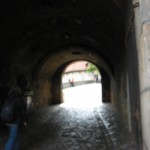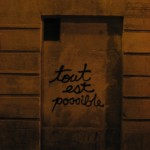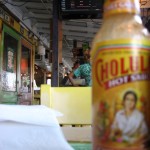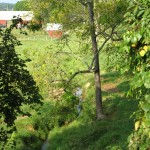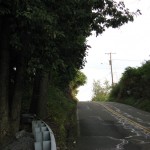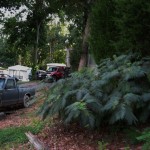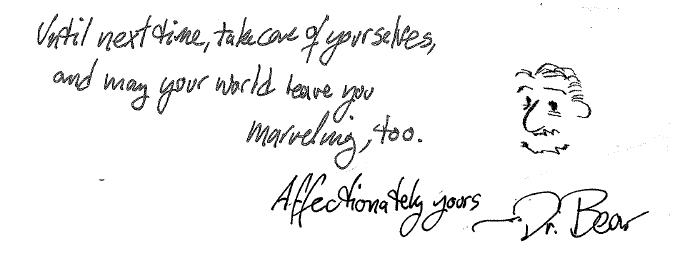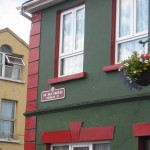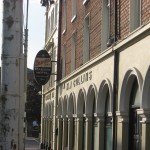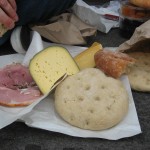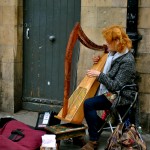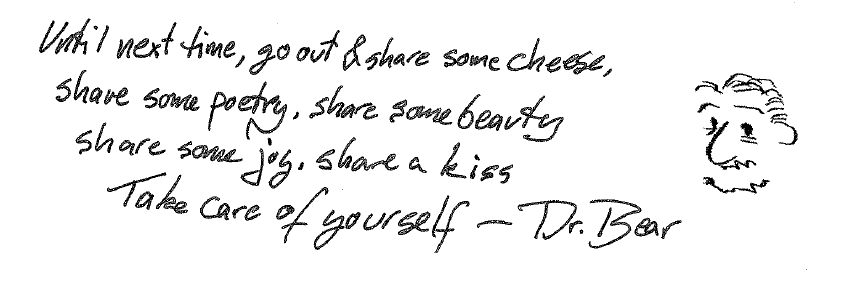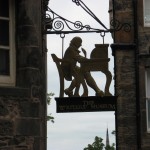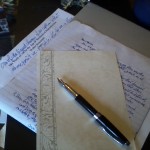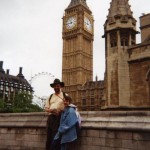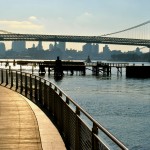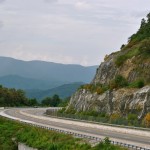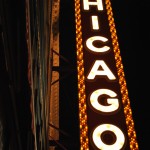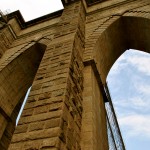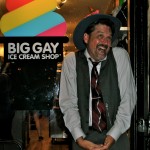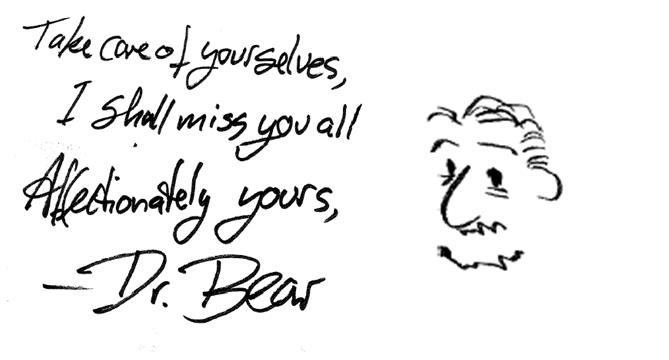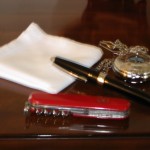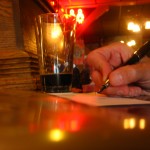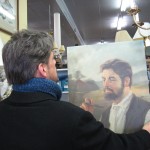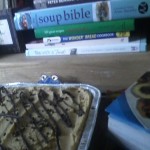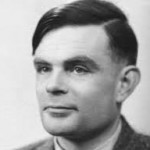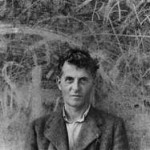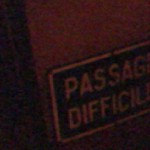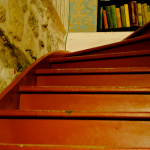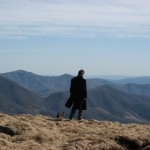Anybody who knows me knows that I have a tendency to lose things—notes, books, pens, spectacles, kidneys, my left hand, etc. Once I almost lost my brother.
It happened like this:
James & I were out for a long walk in the woods a mile or so from the apartment we lived in. I admit, I was a little unhappy to have my brother tagging along, and was wishing I were with cooler friends, but there it was. We were late getting home (again, anybody who knows me knows that I am almost always late; I have a fairly good sense of time, but choose to ignore it). We were late, and I was worried about getting into trouble, so we took a short-cut.
There was a huge construction site near our house, and by cutting across it (I love a good steeple chase, always have) I felt we could make better time. It was probably to be a new apartment building—20 stories or so, so they had dug a good basement/foundation, and left a pile of dirt. The pile of dirt was about a story and a half tall, and maybe a block wide—in the Midwest, this would qualify as a mountain. We began to climb,
…and climb,
…and climb.
At the top, there was a huge plateau of dirt, stretching as far as I could see; I couldn’t even see the 16 story building we lived in, just a world of dirt. It had been raining for a few days, so it was muddy, and we sunk in as we walked, but I had the confidence of an 11-year-old who lives life as a disinherited nobleman, so I wasn’t worried.
Maybe a little worried about what my Mom would say, but not terribly worried.
We started across the mud, two small explorers alone in a wasteland.
About half way through, we encountered a big patch of clay, and James began to sink. You sink a little bit in mud, but clay pulls you down like quicksand, and holds you tight.
He sank, and started to yell.
I told him to keep very, very still, otherwise he would sink deeper.
He kept still, but started to cry.
He was chest deep in vicious clay, still sinking, and I had no firm footing to pull him out.
These were some of the most terrifying minutes I have ever spent.
Talking to him, trying to calm him, I worked my way to where he was stuck. He looked at me with his watery pale blue eyes, panicked, but absolutely convinced that I would take care of him. I wish I had been as sure.
I only knew that the thought of losing him was more than I could bear.
Gradually—I am not entirely sure how—I worked him out of that hole he was sinking into. All of him except one shoe, which I couldn’t recover.
We slogged home in silence, and were in big trouble; we were late, we were covered head to toe in mud, and he was missing one shoe.
I have a retarded brother.
I realize that anyone who has a brother has thought that at some time, but my brother has Down Syndrome. It is a genetic disorder—one of those failed meiosis things—meaning he has an extra 21st chromosome. This leads to a variety of developmental delays and physical differences. He can communicate English, German and ASL, and, when he isn’t cranky and mule-headed, has an amazing level of empathy, but he does have cognitive and social limitations. As his younger brother (he loves to remind me he is the older one and the good-looking one; my sister is incredibly smart, that left me as the creative, eccentric one), this was generally difficult.
Let me make perfectly clear that I do not like the word retarded, and I hate hearing it used as a pejorative.
Until I started High School, we had never been in the same school. If any of you remember the High School Cafeteria, you will remember that there are rigid social divisions—who can sit with whom, who the cool or popular kids are, which are the pariahs. You might remember the nerdy or geek tables as being the outcasts—the freaks—but there was always one table that was even lower on the scale: The Special Education Table. In those days, the Special Education kids were kept far way—often in a trailer—but invisible, except in the cafeteria. Each day, I would see him there with his buddies, and each day, I would turn my face, afraid to be shamed by being associated with “them.”
This was terrible.
I was wracked with guilt for weeks.
Each day I resolved I would say Hi, and each day I would chicken out, and them kick myself for my cowardice. “He’s your brother! How can you disown him?!?” However, each time I walked by, I turned away, afraid of what my friends might say. I thought about it constantly, lay awake at night brooding on it, prayed about it, worked it through, but I felt so awful.
Finally, after a month or so, I worked up the courage, and, as I walked by, in a little timid voice, I said: “Hi, Jimmy.”
He stared at me with those blue eyes.
Terror and shame played across them.
He turned away, and covered his face, hoping his friends hadn’t noticed that this “freshman,” this geeky kid with glasses and braces and a voice that cracked had talked to him.
I laughed.
After that, each day I made it a point to stop, and in as loud a voice as I could to yell: “Hey, Jim-bo!”
That’s what brothers do.
PS: He turns 52 next Saturday. If you want to send him a card, send a message, and I’ll send you his address. He loves to have a fuss made over him (who doesn’t?)
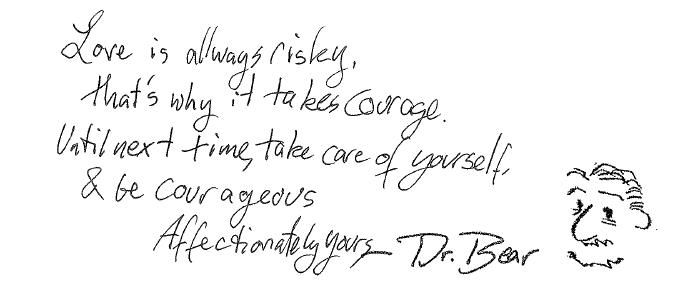
Like this:
Like Loading...


